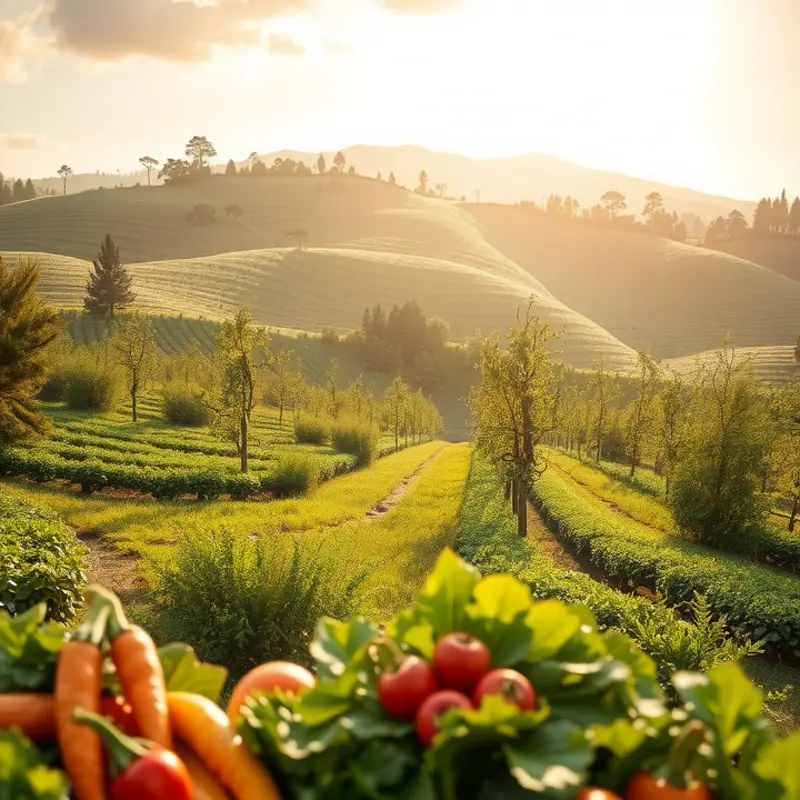Eating seasonally means choosing food that’s harvested at its peak. This approach not only enhances flavor but also contributes significantly to nutrition and overall health. By embracing seasonal eating, health-conscious adults can align their dietary choices with nature’s cycles, maximizing the nutritional value of their meals while minimizing environmental impact. The benefits extend beyond the palate, influencing wellness, sustainability, and even local economies. Let’s explore how seasonal eating can transform your health and eating habits.
Nutritional Advantages of Seasonal Produce

Embracing the natural cycles of seasonal eating offers a bounty of nutritional benefits. Seasonal fruits and vegetables often reach their peak not only in flavor but also in nutrient density, providing a delicious and health-boosting addition to your diet. When food is in season, it’s generally fresher and requires less transportation and storage time before reaching your plate, allowing it to retain more vitamins and minerals.
Vibrant Spring Selections
Spring brings an array of brightly colored fruits and vegetables packed with nutrients. Asparagus, rich in folate and vitamin K, supports heart health and bone strength. Strawberries offer an abundant source of vitamin C, which boosts immunity and promotes skin health. Radishes enhance salads with their peppery flavor and are rich in fiber, aiding digestion.
Summer’s Diverse Offerings
During the summer, gardens and markets overflow with produce bursting with flavor. Tomatoes, abundant in this season, are rich in lycopene, an antioxidant known for its cancer-fighting properties. Watermelon provides hydration and vitamins A and C, essential for eye health and a robust immune system. Cucumbers not only cool us down but also provide hydration and are a good source of vitamin K.
Nourishing Fall Harvests
As the weather cools, our bodies yearn for the comforting warmth of fall produce. Pumpkins are a great addition to the diet, full of beta-carotene, which the body converts into vitamin A, crucial for healthy skin and eyes. Apples, full of antioxidants and fiber, help in managing blood sugar levels and supporting brain health. If you enjoy hearty dishes, consider exploring recipes like the Mediterranean Chickpea Salad, which incorporates many fall vegetables, enhancing both flavor and nutrition.
Winter’s Robust Choices
Winter might seem sparse in terms of fresh produce, but root vegetables and cruciferous options thrive during this cold spell. Brussels sprouts and cabbage are plentiful, providing a wealth of vitamin C and K, beneficial for reducing inflammation and supporting immunity. Sweet potatoes are a comforting source of complex carbohydrates and are rich in vitamin A for maintaining good vision and skin health.
Eating in harmony with nature not only enhances the flavors on your plate but makes your meals more nutritious. The rhythm of seasonal eating aligns with the natural lifecycle, offering diverse flavors and nourishing nutrients when they are most generously available.
Sustainable Eating: Supporting Local and Reducing Waste

The practice of seasonal eating extends beyond personal wellness; it plays a pivotal role in sustainable living. One of the most profound effects of eating seasonally is its ability to support local economies. Buying produce that is in season from local farmers not only keeps money within the community but also fosters a connection between consumers and producers. This relationship encourages a closer understanding of the food we eat, where it comes from, and how it is cultivated.
When we choose seasonal produce, we are often choosing food that has traveled fewer miles to reach our plates. This reduction in transportation significantly cuts down carbon emissions. Imagine the journey of out-of-season fruits, flown or shipped thousands of miles under cooling conditions, contributing to considerable carbon footprints. In contrast, seasonal foods, especially those grown nearby, help decrease the demand for long-haul transportation and the associated environmental impacts.
Beyond transportation, seasonal eating reduces environmental stress. Crops grown in their natural seasons require fewer human interventions such as heated greenhouses or chemically intense pest control. This reduces the resources needed for production and results in lower overall pollution. Eating in harmony with nature’s cycles helps farmers utilize natural climate advantages, leading to better yields and healthier soils.
Incorporating seasonal foods into our diets encourages sustainable practices that naturally reduce food waste. When we purchase food in abundance due to its seasonal availability, we often buy it at its freshest, allowing for longer shelf life and better taste. Fresh, quality produce is less likely to end up as waste compared to imported, less flavorful, and chemically preserved options.
Supporting local farmers by buying seasonal foods not only aids in environmental sustainability but also promotes biodiversity. Small-scale farms, often more diversified than large monoculture operations, help maintain the genetic diversity of plants. This variety is crucial for resilient ecosystems that can withstand pests and diseases, adapting to changing environmental conditions.
Choosing to eat seasonally aligns with several dietary frameworks that emphasize fresh, nutrient-dense foods. Diets like the Mediterranean, known for its health benefits, often rely on seasonal ingredients such as fresh vegetables and fruits. This approach encourages a diversified diet and lays the foundation for healthier lifestyle choices.
For example, those interested in flavorful seasonal dishes might explore Mediterranean recipes like a Mediterranean Chickpea Salad, which highlights fresh, local ingredients.
The movement toward seasonal eating is not just a trend, but a necessary shift towards responsible consumption. By choosing seasonal, local foods, we contribute positively to our local economies and play a part in preserving the environment. Supporting local and reducing waste through seasonal eating is fundamental to creating a sustainable food system that respects both people and the planet.
Final words
Embracing seasonal eating offers numerous benefits for health, nutrition, and sustainability. By choosing to eat with the seasons, individuals can enjoy fresher, tastier, and more nutrient-rich food while also lowering their environmental impact. This practice fosters a deeper connection with local agriculture, supports the economy, and promotes a healthier lifestyle. Transitioning to a seasonal diet may require some adjustments, but the rewards are substantial. Start choosing seasonal foods today to enhance your health and well-being while making a positive impact on the planet.







